Cummins DEF System Problems: 6 Most Common Issues Highlighted
There are an increasing number of cases of Cummins DEF system problems with diesel engines. While on your camping trip, you may have experienced these diesel exhaust fluid system issues. I am going to go through six common DEF-related problems and tell you how to fix them. Let’s begin!
Table of Contents
Cummins DEF System: A Basic Intro
Diesel Exhaust Fluid (DEF) is a type of additive and safe chemical that, at a rate of 32.5% water and 67.5% water, is specifically manufactured to maintain a low freezing point of 12 degrees Fahrenheit.
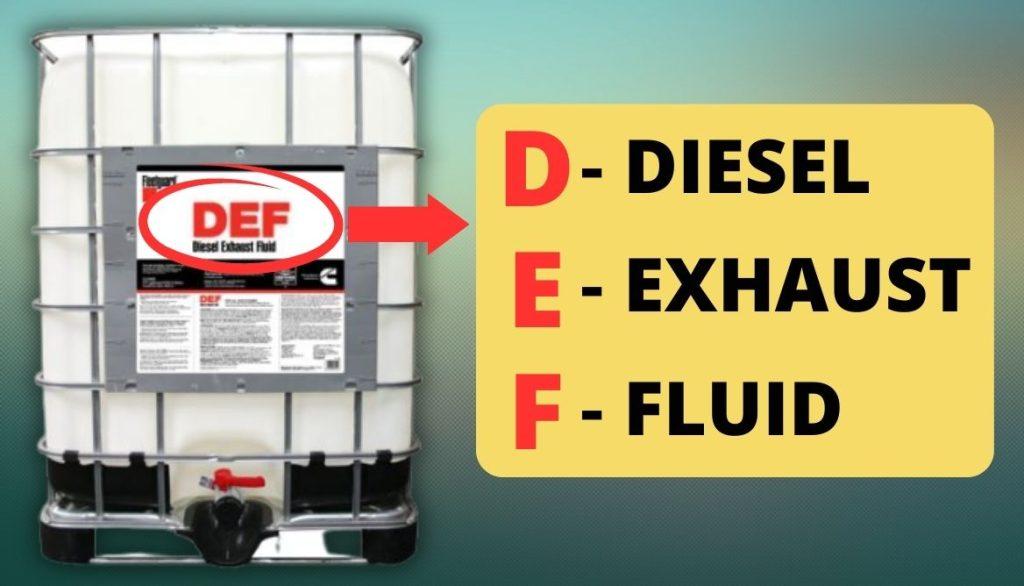
This fluid can damage SCR injectors and catalysts, impurities are tightly controlled and urea, which is commonly used in fertilizers, cannot be used to create DEF.
Cummins Diesel Exhaust Fluid Sensor Problems
In 2016, the Environmental Protection Agency (EPA) mandated that all new diesel engines must have a sensor designed to detect the concentration level of DEF. So the DEF system is composed of:
- A DEF pickup tube
- A heat tube for engine coolant, and
- A DEF sensor.
Some of these sensors had a short lifespan, and this was usually due to the design of the particular chassis, such as the Spartan chassis, where the DEF head was close to the hot engine exhaust system and circulated with hot engine coolant.
Three fault codes may be displayed if the sensor chip fails::
- Cummins Fault Code (ERROR 3868) SPN 1761
- FMI 9 (CUMMINS ERROR 4677),
- SPN 3031 FMI 9 (ERROR 4572).
6 Cummins DEF System Problems Troubleshooting
Keeping up with regular DEF maintenance is important for the good running and emissions of an engine. That said, it’s worth knowing the problems that may arise.
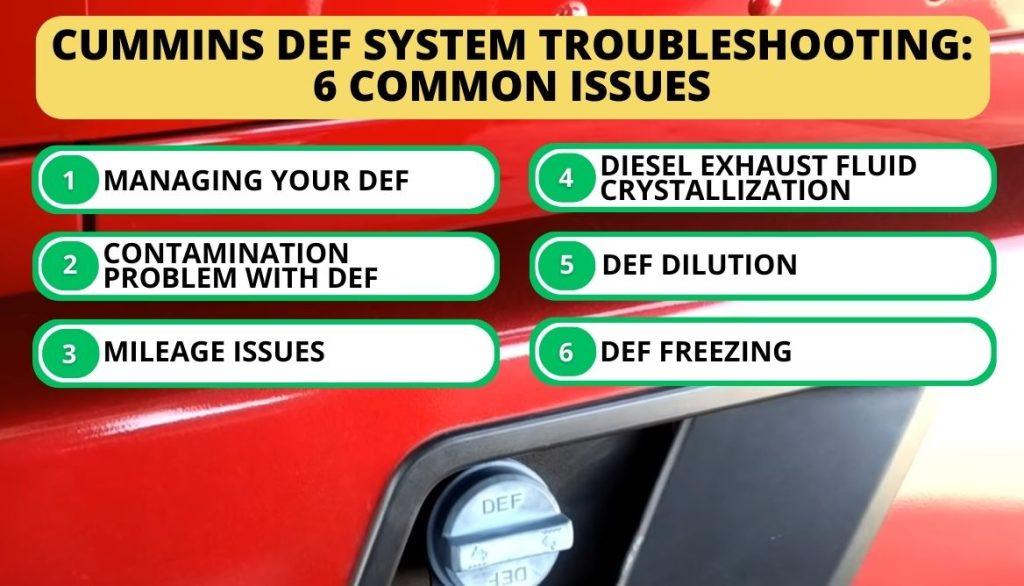
1. Managing Your DEF
Handling DEF is an essential factor to consider as to its effectiveness and shelf life. Succeed the below guidelines for proper handling of DEF:
Take Care About Storage Place
Diesel Exhaust Fluid should be stored where it does not come in contact with direct sunlight, as this can cause it to degrade more quickly.
- The company suggests storing DEF in a location indoors, like a garage or basement, so that it is not exposed to high temperatures.
- What’s more, DEF should be stored in a stainless steel or plastic bottle when not in use, as these materials are less susceptible to degradation from the air.
Don’t Store It In Too Much Cold Temperature
DEF starts to freeze at 12 degrees, so storing it in a more excellent environment is recommended. DEF can expand to about 7% when frozen if left at lower temperatures for too long. Hence, it is crucial to store DEF away from freezing temperatures as much as possible.
Keep It In A Container, Instead Of Bottles
Purchasing a container instead of multiple small bottles is recommended to ensure that you always have enough DEF on hand and that it stays at optimal quality.
This way, you can have a larger supply of DEF, but all stored in one container and away from direct sunlight.
2. Contamination Problem With DEF
DEF is a compassionate solution and can quickly become contaminated if mismanaged. Hence, it is essential to take extra precautions when handling DEF.
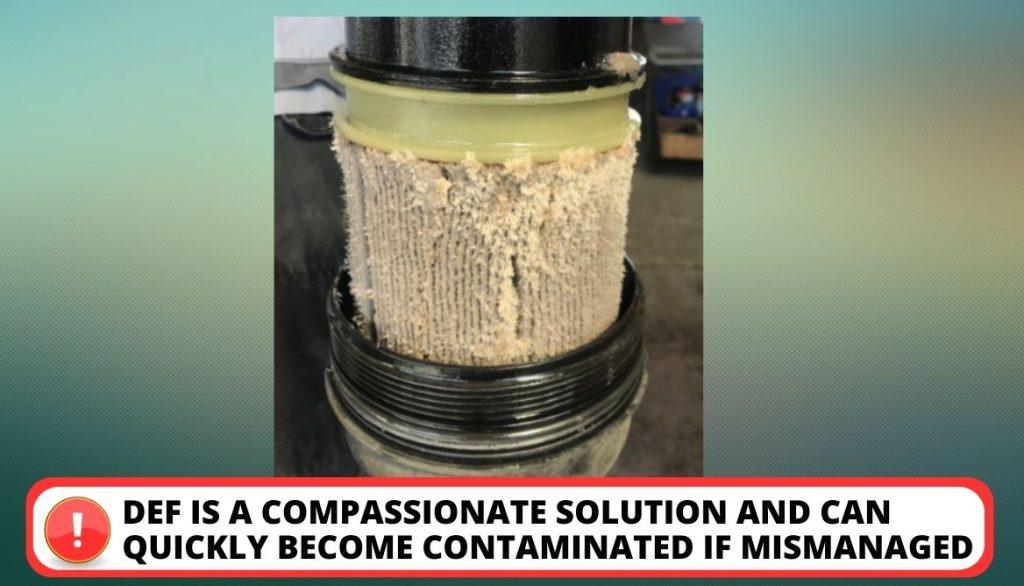
How To DEF For Contamination?
The way to check for contamination is to check the urea levels in the DEF filter tank. If the urea levels are lower than expected, it could indicate that the DEF has been contaminated.
Precautions To Prevent From Contamination
To prevent contamination:
- DEF should be stored in a clean, relaxed environment without other chemicals or lubricants.
- When filling the DEF tank or checking levels, the utmost care should be taken to ensure dust does not enter the tank while the lid is open.
- It is also essential to cleanse the sides of the tank and the cap to ensure no contamination occurs.
- It is also essential to store, fill and check DEF with care.
3. Mileage Issues
One of the most common issues with Cummins DEF systems is related to mileage problems. It’s been reported that sometimes a vehicle speed goes through significantly lower mileage when using DEF.
How To Fix This Issue?
For this, you should:
- The most common recommendation to fix this issue is to stop using the DEF system altogether.
- Some people who have deleted their DEF system have reported a 30% improvement in their mileage but it also depends on how much weight your exhaust stream system has.
- However, this works best on large vehicles such as trucks, buses, and vans; the results differ for cars.
- While you can delete the system, it is essential to note that it could void your vehicle’s warranty and be illegal, depending on where you live.
4. Diesel Exhaust Fluid Crystallization
DEF Crystallization can occur when too much DEF is added to the system. A faulty DEF pump may cause this, plugged DEF lines, or the use of hard water for topping up the DEF system.
Effects Of Crystallization On System
Let’s look at the different effects of crystallization on your system.

- Crystallization of DEF can cause the system to become clogged and reduce the engine’s efficiency.
- The contamination can lead to an increase in exhaust emissions and a decrease in the fuel economy.
- If left untreated, crystallization can also damage the fuel injectors and other engine components.
How To Avoid DEF From Crystallization?
To prevent crystallization:
- Ensuring you are using the correct amount of DEF in the system is vital.
- Also, ensure that the DEF filter pump is functioning correctly and that any lines that could be blocked are cleansed or replaced.
- If hard water is used to top up the DEF system, it should be appropriately filtered before being added.
5. DEF Dilution
Adding too much water when topping up the DEF system or SCR catalyst with an injector nozzle can lead to dilution and crystallization, making the fluid ineffective. This idea is a common problem in diesel fuel engines, resulting in decreased performance and increased emissions.
Affect On DEF Tank
When the DEF fluid is diluted, the engine’s control unit will detect a drop in concentration and display a warning message on the dashboard.
How To Fix It?
The only way to fix this issue is to replace the entire DEF tank. Succeeding the manufacturer’s instructions when refilling the DEF system is essential. Adding too much water can easily lead to dilution and crystallization.
6. DEF Freezing
When it comes to DEF freezing, it is not a big issue if it is in its storage container. This event is because it can quickly thaw with no damage. However, if DEF is freezing in the system during cold weather, this idea can cause severe issues with the SCR system.
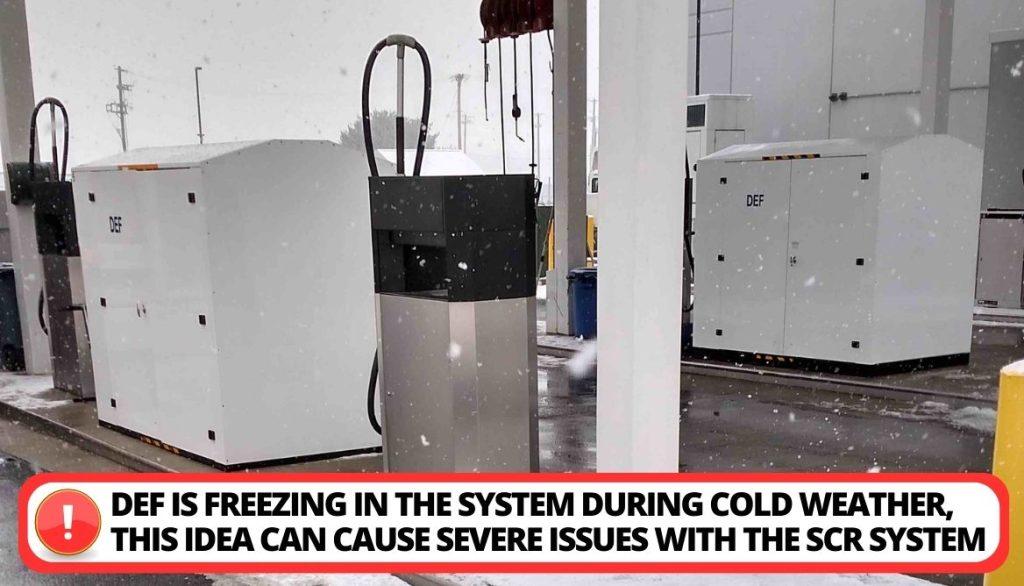
Troubleshooting
Understanding what can go wrong with the DEF freezes and the design inside is essential to learn proper troubleshooting techniques. DEF that freezes in the system can cause blockages and lead to corrosion.
Ways To Solve This Problem
Follow these tips to fix this issue:
- To avoid damage from DEF freezing, ensure the system is properly insulated and maintained with the correct DEF grade for your specific environment.
- Keeping the design and the container at a constant temperature also helps reduce any potential problems.
Common Problems with Cummins DEF and How to Test for Them
Here, I will explain the different possible issues with the DEF system along with their testing methods.
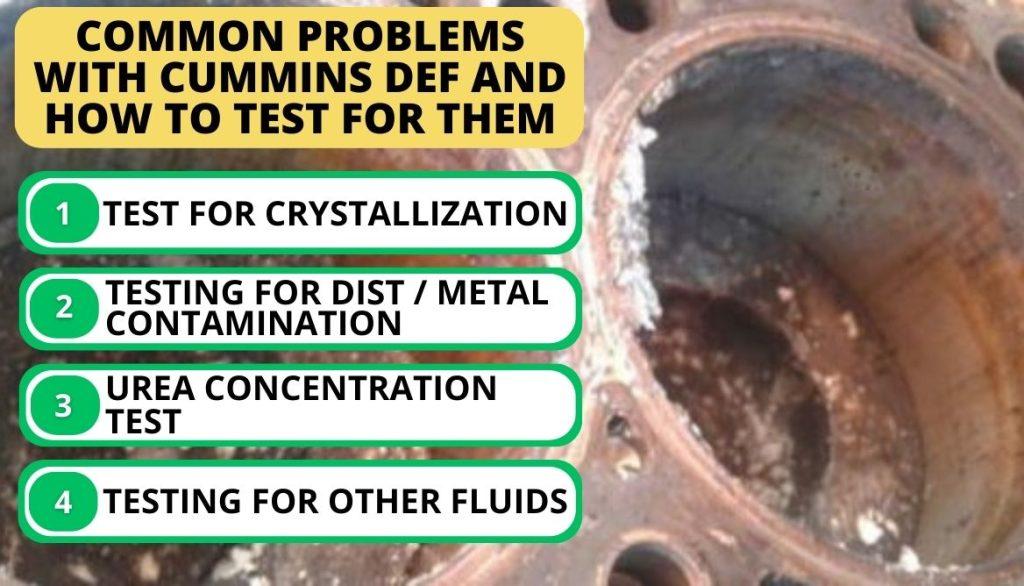
1. Test For Crystallization
Testing for Crystallization of DEF is a common problem, and it builds up over time. This can lead to decreased performance and fuel efficiency in your Cummins engines.
Different Ways To Test It
There are a few ways to test for crystallization and ensure the health of your DEF.
- The most common field and lab testing methods include visually inspecting exhaust piping and DEF injectors for the presence of crystallization, testing DEF for evidence of minerals, and confirming DEF quality during delivery or in bulk storage.
- You can use ICP Spectrometry or XRF Spectrometry to test DEF for evidence of minerals.
2. Testing for Dist / Metal Contamination
When inspecting your DEF, you should check that it appears clear and free of dirt or metal debris.
Test Procedure
Let’ know more:
- DEF should meet the ISO 22241-1 standard for cleanliness and is measured using the Insoluble Matter test, which requires that no more than 20 parts per million (ppm) of the insoluble matter be present in the fluid.
- For many OEMs, DEF cleanliness is measured using the ISO Particle Count and should have a result of 18/16/13 or lower.
- If the DEF gauge fails this test, it must be replaced with fresh fluid through the injector nozzle.
Note: It is vital to keep an eye on the cleanliness of your DEF as contamination can lead to:
- Poor performance
- Fuel economy
- Reduced engine life.
3. Urea Concentration Test
When testing the urea concentration of your Cummins DEF scr system, it’s crucial to stay within the required parameters.
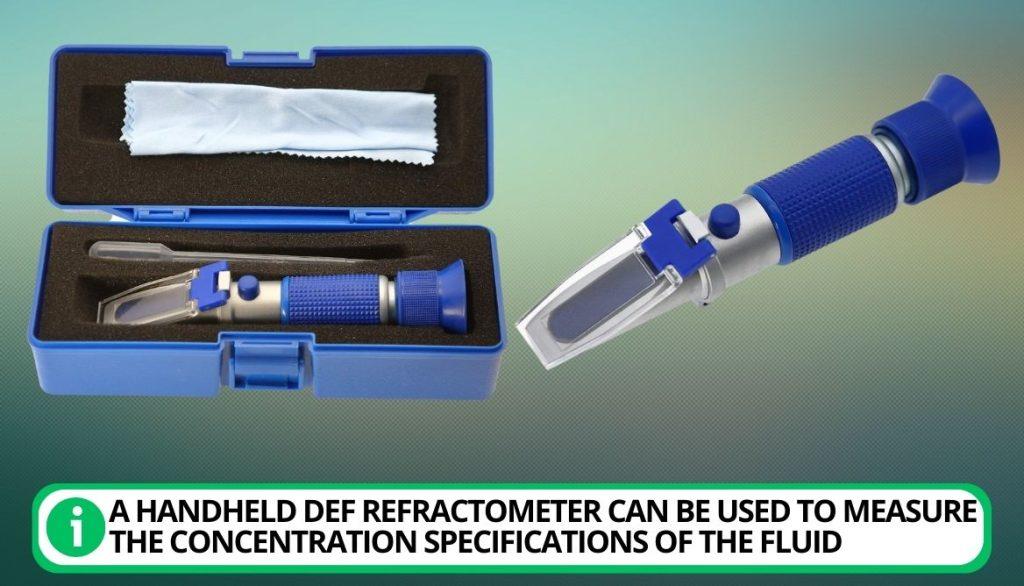
- The percentage of urea should be between 31.8% – 33.2%, with a target of 32.5%.
- A handheld DEF refractometer can be used to measure the concentration specifications of the fluid.
- If you’re looking for a more accurate analysis, samples can be submitted for analysis using the Urea Content (Refractive Index Method) or (from Nitrogen) tests.
4. Testing for Other Fluids
Testing for other fluids should be done regularly to ensure the proper performance of the DEF system.
- A simple smell test for this purpose is the best way to determine if diesel fuel contamination exists.
- If the smell of diesel fuel is present, it’s likely that the DEF has been contaminated and requires additional testing.
- Another potential contaminant is antifreeze, which can also change the % Urea concentration.
- To test for engine or hydraulic oil contamination, collect a sample at the top layer of the DEF tank. If the motor or hydraulic oil is present, it will form a separate layer in the sample taken.
A Comprehensive Way To Fix the 5 MPH Derate
The 5 MPH derate causes the engine to become limited to a top speed of 5 miles per hour. A failed component in the system causes this fault and must be addressed before the vehicle can regain its full speed capability.
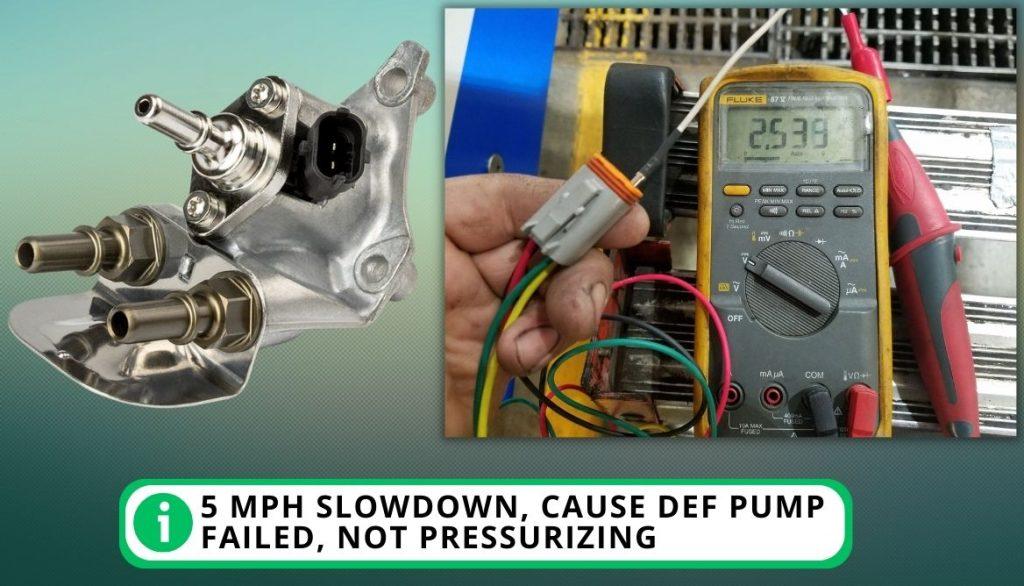
What Are the Common Failures Involved?
Common failures that can cause the 5 MPH to derate include:
- Failed DEF doser valve
- Ran out of DEF fluid
- Inlet and Outlet Nox sensors failed, not making pressure
- EGR system malfunction causing NOX efficiency problems
- DEF pump failed, not making pressure
How To Fix It for DEF Pump?
To fix the 5 MPH derate:
- You must first identify and address the underlying cause. This includes checking for any of the above faults and ensuring all components function correctly.
- If one of these components is identified as faulty, it should be replaced or repaired immediately.
- After addressing any faults, the engine should be cleared and returned to regular operation with full-speed capability restored.
FAQs
What is one of the most common problems in the DEF system?
One of the most common problems seen in the DEF system is crystallization. It is usually caused by a buildup of contaminants that can clog the filter and lead to engine failure.
What happens when the DEF system fails?
When the DEF system fails, it can cause the engine to enter into a derate condition that reduces the power and speed of the machine.
What are the common issues of DEF?
The most common issues of DEF are crystallization, contamination with dirt and metals, incorrect urea concentration, and contamination with other fluids. These can all lead to a 5 MPH derate.
What DEF is recommended for Cummins?
Cummins recommends using only high-quality, ultra-low sulfur diesel exhaust fluid (DEF) for all its engines. This DEF should meet ISO 22241 specifications and be stored and handled correctly to ensure maximum efficiency and performance.
What happens when you run out of DEF in a Cummins?
A Cummins engine running out of DEF will go into a “derate” mode, where the engine power and speed are significantly reduced to prevent damage. This debate can only be reset by refilling the DEF tank and allowing the system to reset.
Concluding Thoughts
Overall, Cummins DEF system problems are common and can lead to severe problems if not fixed promptly. Understanding the basics of the Diesel Exhaust Fluid and how to troubleshoot and test for potential issues is essential. Caring for your Cummins system ensures it runs smoothly and efficiently for many years.
By staying informed and attentive, you can keep your DEF system running smoothly and avoid costly repairs in the future. What are some other Cummins DEF system issues you have experienced? Let us know in the comments below!

I`m a current Law Enforcement Officer working within the Counterterrorism Bureau in New York State. I have been Camping for over 20 years. My styles of camping include tent, car, truck, van, and RV travel trailer. I have a YouTube channel where I teach all types of camping with an entertaining method: https://youtube.com/@TheSmallsRVAdventures






